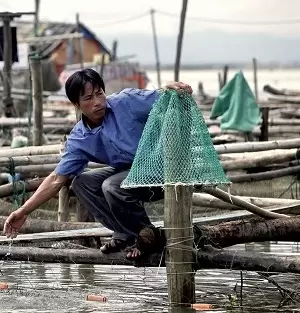FAO Report calls for the recognition of workers’ right to organise

Published: 01/07/2016
2016 edition of the state of world fisheries and aquaculture report was issued by the UN’s Food and agriculture organisation (FAO) in preparation for the 32nd session of the Committee on Fisheries. The report provides a comprehensive picture of the global seafood industry and covers specific issues which require attention of national governments and the United Nations.
Employment in seafood sector: the big picture
Many millions of people around the world find their source of income and livelihood in the fisheries and aquaculture sector. The most recent estimate by FAO indicates that 56,6 million people were engaged in the primary sector of capture fisheries and aquaculture in 2014. Of this total, 36 percent work full time, 23 percent part time and the rest had either occasional or unspecified employment status. Women who are directly engaged in primary production account for more than 15 percent of workers employed in fisheries and aquaculture; and they form 90 percent of all workers employed in processing. The FAO statistics show that overall employment in the sector has decreased, this is almost entirely due to a drop in the number of fishers by some 1,5 million people, while employment in aquaculture and processing remains stable. Consequently, the proportion of those employed in capture fisheries within the fisheries and aquaculture sector decreased from 83 percent in 1990 to 67 percent in 2014, while that of those employed in fish farming increased, correspondingly, from 17 to 33 percent.
Decent work deficit
“Sustaining fisheries through fisher folk organizations and collective action” and “Promoting decent work in fisheries and aquaculture” are listed among the issues selected for researching and addressing through policy development.
The report recognizes that employment in the sector often provides insufficient income, allows for wide-spread exploitation of fish workers, occurs under hazardous conditions, and is profoundly affected by gender inequality, child and forced labour. Workers unionisation levels in fish processing and other stages of the value chain are generally very low, which is one of the key reasons of the widespread violations of labour rights and the poor working conditions. “There should be recognition of the rights of fish workers to organize, bargain collectively and participate in fisheries and aquaculture planning, development and management of pre-harvest, harvest and post-harvest operations”, concludes the section of the report devoted to the promotion of decent work.